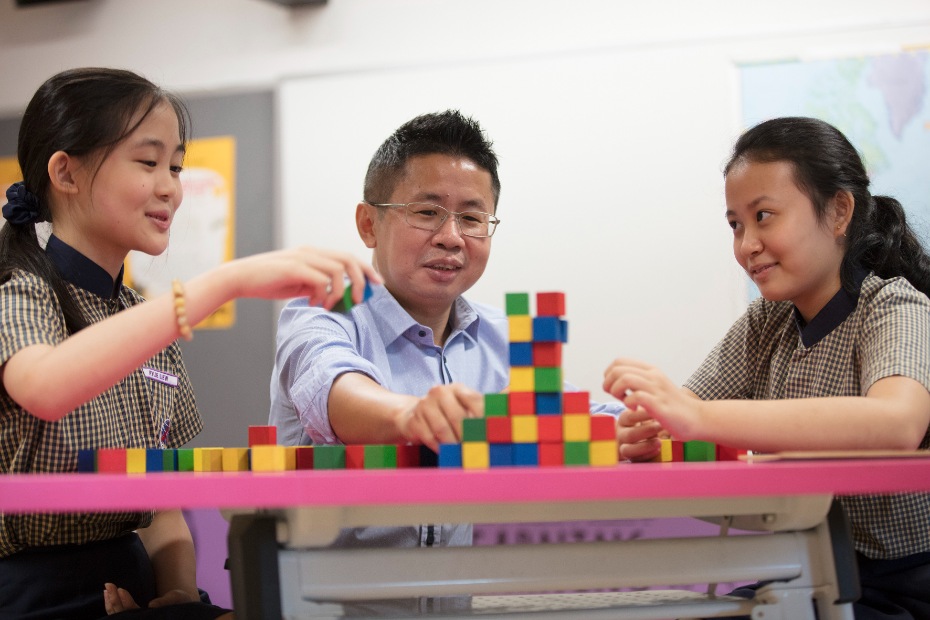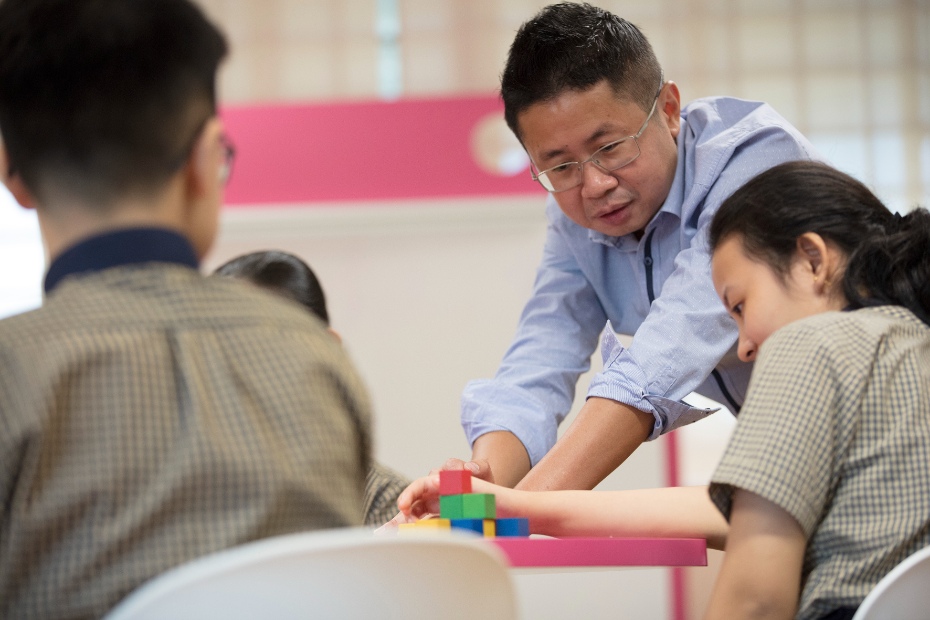‘We will never know how their education journey ends’
27 Sep 2022

Primary school educator Alan Tan knows he has done the right thing by his students when they come back to visit.
Alan Tan, Anderson Primary School, President’s Award For Teachers 2022 Finalist
“What happened to you?” Mathematics educator Alan Tan had asked his former student who had come back to visit him. The teen was acting rude and rebellious, very unlike the boy he had taught in primary school.
Years later, the teen would contact Alan again, this time to share that he had turned the corner, and also had done better than expected at school to secure a place at a polytechnic. He thanked Alan for the time and effort put in during his primary school days, when he felt adrift in a dysfunctional family and had problems with his mother.
“At the primary school level, we will never know how their education journey ends,” says Alan wistfully. Customer feedback can make a difference to how a business improves; Alan gets plenty of feedback from his past students who visit him years later to thank him for what he did right.
Alan has been teaching at Anderson Primary School for 18 years – his first and only posting upon joining the teaching service. Asked what has made his career fulfilling thus far, he says half-jokingly that students don’t run away from him when they see him.
“They come to me,” he says, happy as a father who has good ties with his children. For those who have left school? “They come back to see me.”
All thanks to his teacher Mr Tuang
So what has Alan done right? What comes up consistently is how he treats every student differently because every student is different.

Alan, who teaches Mathematics, English and Social Studies, starts every school year aiming to figure out what makes every child tick, and what would work best to help them thrive. It could be through the subjects he teaches, the CCAs he oversees, or the projects and learning packages he develops with his fellow teachers for the school.
“It’s important to me to relook the instructional strategies we use in the classroom, to help meet their learning needs according to their interests and readiness levels,” Alan enthuses. “I aim to not only get to know my students well, but also allow them to know me better, through the sharing of my personal experiences in my daily life and the reflections from my school days.”
Casting his mind back to his own Primary school days, Alan remembers how a form teacher by the name of Mr Tuang – a “very firm but very fair” man — has been a role model for him as an educator.
He recalls this seminal incident with a chuckle: “When Mr Tuang was reading out the positions of all the students in class, he announced that I got seventh place in class and I let out a happy whoop! Some of my classmates started laughing at me but I will never forget what he said to the class – he told everyone, ‘He has a right to be happy.’ ”
“When there is laughter in the class, a connection is inevitably made between the heart and the mind…my students do actually retain information and schoolwork better when I use humour. Learning should never be a chore.”
Alan was grateful Mr Tuang spoke up for him from a place of understanding. “My teacher was affirming the effort I had put in, and not my intelligence or result.”
He puts this experience to good use with his students. He is deliberate in recognising the individual strengths of his students and goes out of his way to show them that he supports them beyond their grades.
“Some students may look so lifeless in class, but they really come to life when they put on a pair of soccer boots or dance shoes,” Alan says. “I try my best to turn up when they take part in the National School Games to cheer for them, or watch the videos of their performances at the Singapore Youth Festival. I want them to know that I truly see their talent.”
A good repute goes a long way
Alan’s school is also no stranger to tailoring strategies to meet its students’ needs. Anderson Primary School arranges for customised timetables for Primary 6 students who need one. Alan recounts how this has helped a student in his Primary 5 class who was struggling with anger management issues. It was not uncommon to hear screams emanating from his classroom and major meltdowns in class.

To minimise his stress in school without sacrificing progress in his education, the school arranged for him to attend only English, Maths and Science classes. In Primary 6, when Alan took over as the boy’s teacher, he tried to get to know him better. He took an interest in the boy’s CCA waterpolo, and they would speak every day about his matches or his lessons. The boy had also heard good things about Alan from his older brother, whom Alan taught, which oiled the wheels of conversation too.
Summing up, he says, “I managed to build a good rapport and trust with him. He never had a meltdown that year at all.”
Has Alan always been this congenial with his students? As a jovial person who naturally loves kids, he admits it’s hard not to be.
“In my earlier years, I used to smile at the class easily and cracked lousy jokes early on in Term 1, before I got a handle on them,” Alan remembers with a wry smile. “The students jumped on that and tried their luck, talking out of turn and never taking me seriously. I had to learn the hard way!”
Today, he is known to be a firm yet fair teacher – much like Mr Tuang was to him. And of course, he makes certain to keep his feedback positive even when his students do not give the right answers immediately.
Putting the fun into schoolwork
That’s not to say Alan has lost his funny bone. When he gets more familiar with students, he loosens up and everyone contributes to the positive atmosphere in the air.
“When there is laughter in the class, a connection is inevitably made between the heart and the mind…my students do actually retain information and schoolwork better when I use humour. Learning should never be a chore,” he emphasises.
How does Alan keep the pep up? He routinely deploys apps like Deck Toys and Blooket to weave fun activities and games into his daily lessons. He also looks out for Math concepts that can be learned in a fun way.
he got some of his students to take part in a mini game design competition, with the winning game selected for entry into an annual mathematics competition organised by NUS High School and the Gifted Education branch.
“They learn so much from these annual competitions: time management, working as a team, presentation skills, and strengthening their mathematical concepts along the way,” he explains. “And the game we submitted in 2019 even won a Commendation Award!”
Fun and games aside, Alan also reiterates the need for his students to rest sufficiently, as part of their overall well-being.
“Some parents will tell me their children only go to bed at 10 or 11pm, after they have completed all their homework for school and tuition. I will remind them that getting adequate sleep is actually part of exam preparation as well, since it helps them have a sharper mind to learn better in class the next day.”
All in a day’s work for Alan, who sees every child as his own.


.jpg)
.jpg)

